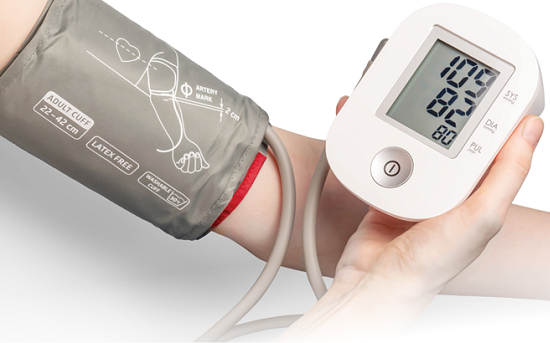American Heart Month: How Can I Reduce My Risk of Heart Disease?
February 9, 2023

Several health conditions such as lifestyle, age and family history can increase your risk for heart disease.
These are called risk factors. About half of all Americans (47%) have at least 1 of 3 key risk factors for heart disease: high blood pressure, high cholesterol, and smoking.
Some risk factors for heart disease cannot be controlled, such as your age or family history. But you can take steps to lower your risk by changing the factors you can control.
To lower your chances of heart disease, it’s important to do the following:
- Know your blood pressure. Having uncontrolled blood pressure can lead to heart disease. High blood pressure has no symptoms, so it’s important to have your blood pressure checked regularly.
- Talk to your doctor or health care team about whether you should be tested for diabetes. Having uncontrolled diabetes raises your risk of heart disease.
- Get moving. The Surgeon General recommends two hours and 30 minutes of moderate-intensity exercise, like brisk walking or bicycling, every week.
- Quit smoking. If you don’t smoke, don’t start. If you do smoke, research ways to quit.
- Make healthy food and drink choices. Eat plenty of fresh fruits and vegetables, fewer processed foods, and avoid sugary drinks.
- Maintain a healthy weight. Being overweight or obese puts you at a higher risk for heart disease. Carrying extra weight can put extra stress on the heart and blood vessels.
- Manage stress levels by finding healthy ways to cope with stress, like reading, walking, or meditation.
Source: cdc.gov
![Oneida Nursing & Rehab Center [logo]](https://www.oneidanursingandrehab.com/wp-content/uploads/sites/20/2019/05/oneide-logo2.png)